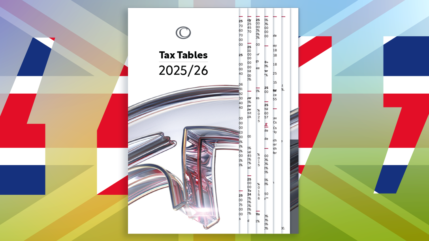Persistent as a prying pug. Income tax is a government levy that’s been in operation for centuries. Today it contributes towards 15% of the UK’s GDP.
Income tax is levied on individuals and corporations to provide money supply for government expenditure. Throughout the years, there have been alternative investment schemes that could reduce the amount of income tax payable for an individual. Here, we explore how strategies, designed to suit specific objectives and circumstances, can help protect your wealth.
In the beginning
Introduced in the 18th Century by Prime Minister William Pitt, Income Tax was initially a bid to cover the costs of the Napoleonic Wars. It was the first tax in British history to be levied directly on people’s earnings and this initiative has been maintained over the generations to date.
Although the structure of income tax has evolved, the concept behind the idea remains largely the same: to provide the government with sufficient funding for their initiatives.
The 1798 system of taxing a maximum rate of 10% differed significantly compared to the government prior to Margaret Thatcher’s, which charged at highs of 83%. Bands and rates have differed from government to government and this will likely continue for years to come.
Who collects income tax?
Her Majesty’s Revenue & Customs (HMRC) collects income tax through PAYE, or through self-assessment for the self-employed. The government sets up tax rates each April for the following tax year as can be seen here.
How does Courtiers help?
Understanding clients’ tax affairs as part of their overall wealth objectives is key to helping to maximise and protect future wealth. Understanding individual circumstances at this level allows Courtiers to assist with client tax return completion and current and future tax planning, with all circumstances and objectives in mind. This is how we help maximise wealth in the long term.
What options are available?
Individual Savings Accounts (ISAs) are tax wrappers that incur no tax charges on any growth or interest achieved from the investment performance. As such, ISAs are not liable to income tax.
Any sum of money can be taken from an ISA without an income tax charge. A maximum £20,000 can be contributed each year per person into an ISA. As you cannot contribute any more, the threshold can’t be exceeded, making ISAs an attractive option.
Collective Investments accumulate growth in a similar way to ISAs but the exemption of tax on growth does not apply. However, as each individual is entitled to £12,000 Annual Exempt Amount towards Capital Gains Tax (CGT), Courtiers is able to utilise this to minimise the rate of tax potentially payable.
Self-Invested Pension Plans (SIPPs) are directly subject to income tax but there are various ways the amount of income tax payable can be reduced. SIPPs are not subject to Capital Gains Tax (CGT) and are advantageous in Inheritance Tax (IHT) planning as they do not, except in some very specific circumstances, form part of an individual’s estate when calculating IHT payable.
While SIPP products currently benefit from a 25% tax free lump sum available upon crystallisation, the remaining 75% would be subject to Income Tax.
Courtiers can plan an income strategy to help reduce income tax payable whilst working to achieve clients’ objectives. A combination of the above can prove beneficial in planning, considering clients’ needs based on timeframe, objectives and personal circumstances.
How do I know this works?
The easiest answer is to ask us to show you! There are many examples to demonstrate how we’ve helped simplify clients’ tax affairs using the knowledge of our advisers and technical teams, garnered and maintained as governments are continually reviewing their regulations.
In a constantly evolving world, Courtiers evolves with it. We aim to stay on top of tax regulations to ensure that we can continue to help maximise our clients’ wealth.













